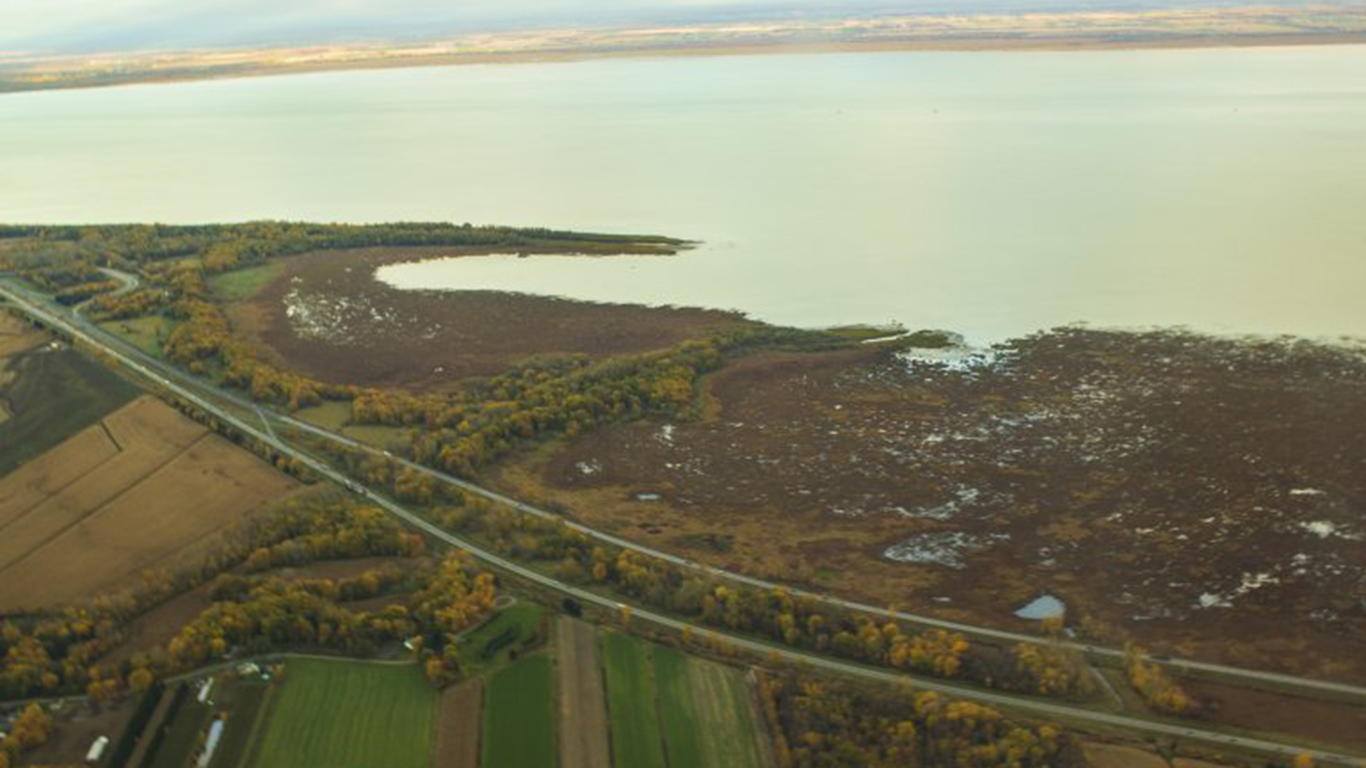While numerous efforts have been made to restore the shore of Lake Saint-Pierre since 2018, researchers now face a vast coordination challenge to achieve a common goal that respects both the ecological and agricultural realities of the sector. They suggest adopting “modest and concrete” targets to maintain the commitment of stakeholders, including affected agricultural producers.
“Currently all efforts translate into small projects, numerous and which struggle to fit into a more global long-term vision. We have difficulty seeing where we are going”, underlined Julie Ruiz, professor at the Department of Environmental Sciences of the University of Quebec in Trois-Rivières and researcher at the socioeconomic axis of the Multidisciplinary Center of Expertise in the Sustainable Management of the Lake Coast of Saint -Pierre.
Together with other researchers from this Center of Expertise, Ruiz presented, during a press conference held on June 26 in Trois-Rivières, a series of recommendations resulting from studies carried out since 2018. These studies aimed to implement agriculture that respects the ecosystem of Lake Saint-Pierre and the restoration of so-called priority coastal environments.
Offering a “basket of solutions”
First, to address the challenge of coordinating actions and communication, the Centre of Expertise recommends the creation of an inter-ministerial committee that would be “the custodian of a common vision and could manage the funds for the rehabilitation of Lake Saint-Pierre, including monitoring projects,” Ms. Ruiz explained. Sub-committees could then be set up, including local committees, to “rebuild the dialogue between the government and the various stakeholders, including agricultural producers,” she gave as an example.
The researcher also underlined that there is currently a form of “social stigmatization” and “disempowerment” of some agricultural producers who exploit coastal lands, in particular because “the producer feels that the weight of the blame rests only on his shoulders and that he must is left to itself to adapt its practices,” he explained. Furthermore, to reduce the pressure on producers’ shoulders, one of the recommendations is to offer them “a basket of solutions”, such as the buyback of land on a voluntary basis, financial assistance, support with a peer group on agricultural practices, or even agroeconomic advice.
The idea is to discuss it at a local level, without trying to immediately aim for an ecological optimum for each coastal area, but rather to seek a vision based on realistic short-term objectives.
Used for a long time for grazing, the agricultural lands of this coast have been progressively converted to the production of corn and soya, which has led to a decline in biodiversity, underlined for his part Stéphane Campeau, researcher of the “environment and wildlife” ” by the Competence Center. The latter reiterated the importance of continuing conservation and rehabilitation efforts of degraded environments.
The Center of Expertise, which brings together more than a hundred researchers, students and professionals from the University of Quebec at Trois-Rivières, Laval University and McGill University, was created in July 2018 by the Government of Quebec, with the granting an endowment budget of 4.66 million dollars, to respond to agricultural, ecological and socio-economic needs
economic areas of the coast of Lake Saint-Pierre. Numerous agricultural producers collaborated on various studies as part of this project, the full report of which will be made public on July 10.
